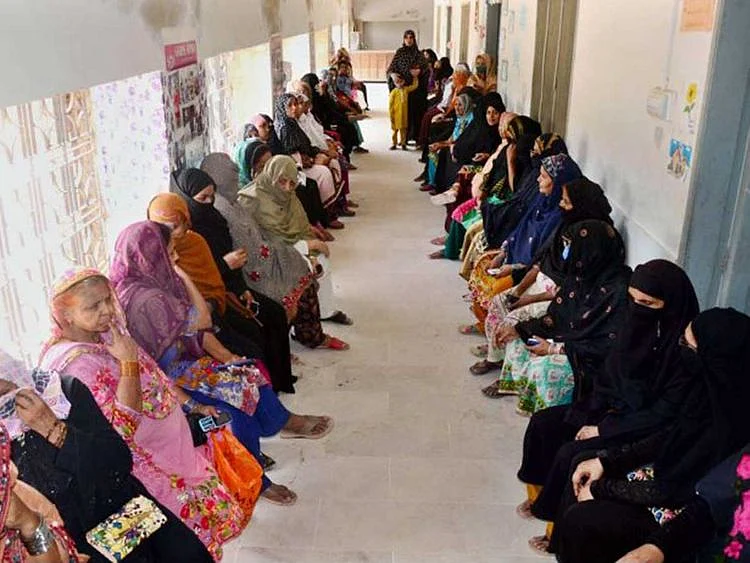COVID: 19:Pakistan fears rapid spread of coronavirus pandemic during Ramadan
With mosques opened for congregational prayers, people warned to take preventive measures

Dubai: Pakistan has warned its citizens to take preventive measure as the government fears rapid increase in coronavirus cases during Ramadan mainly due to congregational prayers in mosques.
Special Assistant to Prime Minister on National Health Services Dr Zafar Mirza has urged citizens to take preventive measures against COVID-19 during Ramazan to mitigate pandemic in the country.
Zafar Mirza, in a briefing on COVID-19, said that there were more threats of spread of the disease during Ramadan and asked the citizens to continue implementing protective measures as per directions to stem the increase in coronavirus cases. The warning came from Dr Mirza hours after an ENT surgeon Dr Javid in Peshawar died of coronavirus.
269 COVID-19 deaths
As the confirmed coronavirus cases tally rose to 12723 on Sunday morning with 269 reported deathsa and 2866 recoveries, Dr Mirza warned the masses that they should change their routine of visiting shops and mosques. “The trend observed during Ramadan was not encouraging at all,” he said, adding that Covid-19 could rapidly spread during the holy month. In Pakistan, more than 144,000 COVID-19 tests have so far been conducted.
Shops and mosques crowded
“Traditionally, rush is observed at shops at the time of iftar. The situation this Ramadan was not different than that of past years as people turned up at shops in large numbers for buyin food just before iftar time. People need to understand that if we don’t follow the precautionary measures, the situation may become worse,” said.
“Pakistan is passing through a crucial, critical time when the disease can spread rapidly. I request the masses that they should change their routine of iftar, Suhoor and visiting mosques,” he warned while speaking at a news conference.
The PM’s aide said doctors from across the country had held press conferences and expressed their concerns, Dawn news reported. “I believe that doctors are aware of the situation of hospitals and our capacity issues. I request you not to go to the places of rush.”
Yaran-e-Watan Programme
He told the media that for doctors, the government had launched a website under the Yaran-i-Watan (friends of the country) programme so that overseas Pakistani health professionals could register themselves to volunteer their services in the fight against Covid-19. “Prime Minister Imran Khan also tweeted in that regard on Saturday,” he said.
Also a website (telehealth.gov.pk) had been launched for doctors to register themselves for telemedicine, the PM’s aide added.
Young Consultants Association warns
Earlier, Young Consultants Association, Pakistan, Chairman Dr Asfandyar Khan addressing a press conference at Pakistan Institute of Medical Sciences (PIMS) demanded that the government ensure the protection of front line health professionals as well as strict lockdown.
He rejected the health professional allowance, equal to one basic salary, announced by the government.
“The situation across the country is continuously worsening so we demand that strict lockdown should be announced.”
Islamic Medical Association's concern
In another press conference held at the National Press Club, Islamabad, Pakistan Islamic Medical Association (PIMA) President Dr Iftikhar Burney expressed deep concerns over the current Covid-19 situation and on the measures taken by the government for relaxing the lockdown at the time when it was most needed.
The PIMA demanded strict enforcement of lockdown and prevention of congregations of all sorts to contain the rapid spread of Covid-19.
Doctors in Quetta, Karachi and Lahore had already been asking the government to ensure effective measures including provision of personal protective equipment to health professionals and strict lockdown to deal with the situation.
The PIMA has warned that mosques were becoming a major source of transmission for the novel coronavirus after the government ordered their reopening under pressure from clerics for Ramadan.
“At present, more than 200 medical staff, including 100 doctors, have tested coronavirus positive,” he added
Mosques opened under pressure
Under pressure from powerful clerics, Prime Minister Imran Khan decided to lift the ban that had been in place for weeks on congregational prayers in mosques. However, the lockdown of schools and most businesses remained in place.
The opening of the religious centres has been conditional on complying with a series of security measures, such as the faithful keeping a metre of distance between each other, carrying their own prayer mats and washing at home.
But Burney warned that smart lockdowns do not work in places like Pakistan: “We will not be able to keep people inside their homes under a smart lockdown for a longer period of time.” The doctor said stricter measures were needed to contain the spread of the coronavirus.
Sign up for the Daily Briefing
Get the latest news and updates straight to your inbox
Network Links
GN StoreDownload our app
© Al Nisr Publishing LLC 2025. All rights reserved.